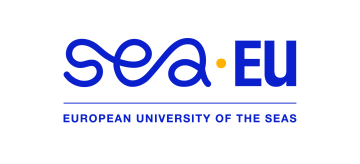
Patricia Marzin-Janvier's research is focused on the mechanisms of transmission and appropriation of knowledge mainly in biology and other disciplines in experimental sciences. She study the reasoning of learners when they carry out practical activities. Another aspect of her work concerns the design and evaluation of technological tools for learning. She is also expert in learning and teaching by the use of digital plateforms, to help students and teachers to learn and teach science, and she is also working on automatic epistemic diagnosis performed by a computer environment, with the aim of helping students design experiments in experimental sciences. This work is done using several theoretical frameworks: the anthropological theory of didactics (Chevallard, 1992), the modelling of the teacher's professional knowledge (Shulman, 1986), didactic engineering (Artigue, 1988) and within the framework of problematization (Orange, 1997). her work has contributed to the design of the Copex software for the LabNbook learning platform (labnbook.fr), and the SCY-Lab platform (www.scy-net.eu).
A multi-site team under the dual supervision of the University of Rennes 2 (R2) and the University of Western Brittany (UBO), CREAD brings together researchers from various disciplinary backgrounds, working on subjects related to educational research in its broadest sense.
From the school institution to actual classroom teaching practices, from the training of trainers in the use of technologies for education from didactics at school at several levels, to informal learning modalities in popular education, the fields of research as well as the theoretical and methodological frameworks mobilized cover many of the approaches deployed in Educational Sciences. Beyond the characteristic diversity of this multidisciplinary field, the CREAD’s members of strive to build a unifying work space over time, bringing together a plurality of actors around scientific and training issues, but also institutional and political issues, in the etymological sense of the term, with the common aim of emancipating the subjects: learners, actors, citizens.
CREAD's scientific project is based on structuring elements: a unifying epistemic horizon in the anthropological reference, a dual aim of intelligibility and transformation, an axiology of practices for emancipation purposes and empirical methods of investigation.
Beyond the specific theoretical frameworks, the recruitments carried out and the evolution of the research of the team members, the epistemological positioning of CREAD remains strongly anchored in an anthropological approach. Whether they work on knowledge, transmission and learning processes, technical objects or institutional dynamics, CREAD researchers understand education and training as a global process, at once biological, psychological and social, economic, cultural and political, inherent to human development.
https://hal.archives-ouvertes.fr/CREAD
